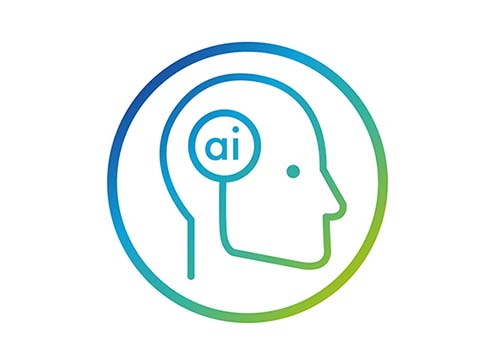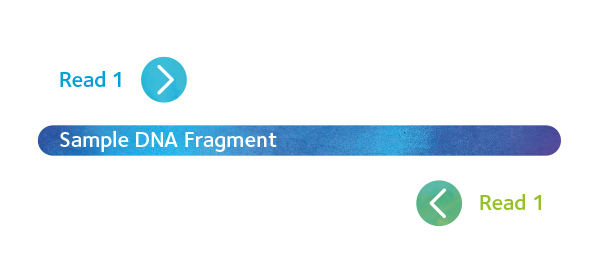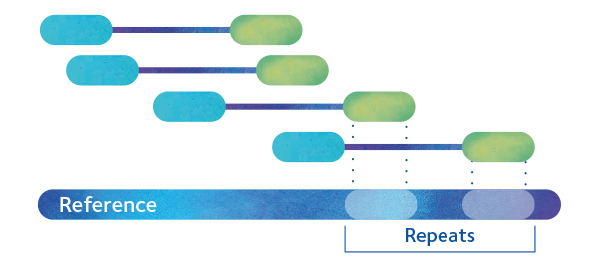PGTai℠ Technology Platform


AI technology for embryo selection
Since its launch in 2018, over 350,000 embryos have been tested with our robust PGTaiSM test1 shown to improve the odds of pregnancy and IVF success2.
Our PGTai is the only test on the market using artificial intelligence (AI) based on clinical outcome data of live births and sustained pregnancy outcomes, eliminating subjectivity, and improving accuracy.
The PGTai platform is a groundbreaking, first-of-its-kind mathematical algorithm that harnesses the power of AI, big data, and machine learning to maximize both sensitivity and specificity during PGT-A.
Availability
This service is available for sale in selected countries around the world.
PGTai℠ Technology
Data is generated via NGS
Data is analyzed using mathematical algorithms and machine learning technology
Our new technology uses algorithms validated through a massive continuously growing data set (~10,000 samples)
- Removes human subjectivity
- Avoids human errors
The PGTai platform brings the power of big data to the clinician’s transfer decisions
A history of PGT-A at CooperSurgical
1993
Dr. Santi Munné is the first to present reports on the use of FISH for PGT-A, assessing abnormalities on chromosomes X, Y, 13, 18 and 21
1999
The first use of CGH for PGT-A is reported
2001
The first birth after PGT-A by CGH is reported
2013
Legacy CooperGenomics companies are the first to launch PGT-A by NGS for clinical use

2018
CooperGenomics launches the PGTai platform, a first-of-its-kind platform that uses artificial intelligence to improve PGT-A analysis and reporting
2019
CooperGenomics launches the PGTai 2.0 platform, the first PGT-A analysis with secondary confirmation of aneuploidy
2022
CooperGenomics releases the addition of Parental QC, Genetic PN check and Origin of Aneuploidy to PGT-A testing as PGT-CompleteSM
The only platform in the field:
- Built on embryo biopsy data (>1000) resulting in live births and sustained pregnancy outcomes
- Validated using sequencing data from >10,000 embryos, analyzed and reviewed one by one for accuracy
Delivering:
- Statistically robust and accurate interpretation
- Improved analytics by removing subjectivity
- Avoids human errors with transcription
- Improved signal clarity, to increase accuracy and ensure optimal sensitivity and specificity

Built on data of >1000 embryo biopsies with known live birth/sustained pregnancy outcomes

Eliminates subjectivity in favour or algorithims

Improves signal clarity, increases accuracy and ensures optimal sensitivity and specificity

Increased number of euploid embryos reported, increased percentage of patients with greater that 1 euploid embryo reported
Since introducing PGTaiSM test
7.7%
relative increase in euploid embryo reporting
21.2%
relative decrease in mosaic embryo reporting
4.2%
relative decrease in aneuploid embryo reporting
More patients with at least one euploid embryo
Most robust assessment of embryos in the market, providing greater confidence in embryo transfers
- Two independent methods for confirming abnormality (unique to CooperSurgical)
- Detection of all forms of ploidy – haploidy, male and female triploidy
- Parent of origin of abnormality (optional)
Paired-end sequencing increases the amount and quality of data generated from each sample
- Provides double coverage and enhances coverage of hard-to-sequence regions
- Improves read alignment and availability (>15%)
- Allows for highly sensitive analysis


Alignment to the Reference Sequence
Read our white papers to find out more about the development of our PGTai technology platform:
Explaining our PGTai platform to your patients
Our latest video gives your patients a visual guide helping them to understand how PGTai can help them identify an embryo for transfer.
Brochures, Catalogs & Flyers
Reproductive Genetic Testing Brochure
Reproductive Genetic Testing Brochure
PGT-Complete Brochure
PGT-Complete Brochure
PGT-A Patient Brochure
PGT-A Patient Brochure
PGTai White Paper
PGTai White Paper
Get In Touch With Us
We’d love to hear from you. How can we help?

